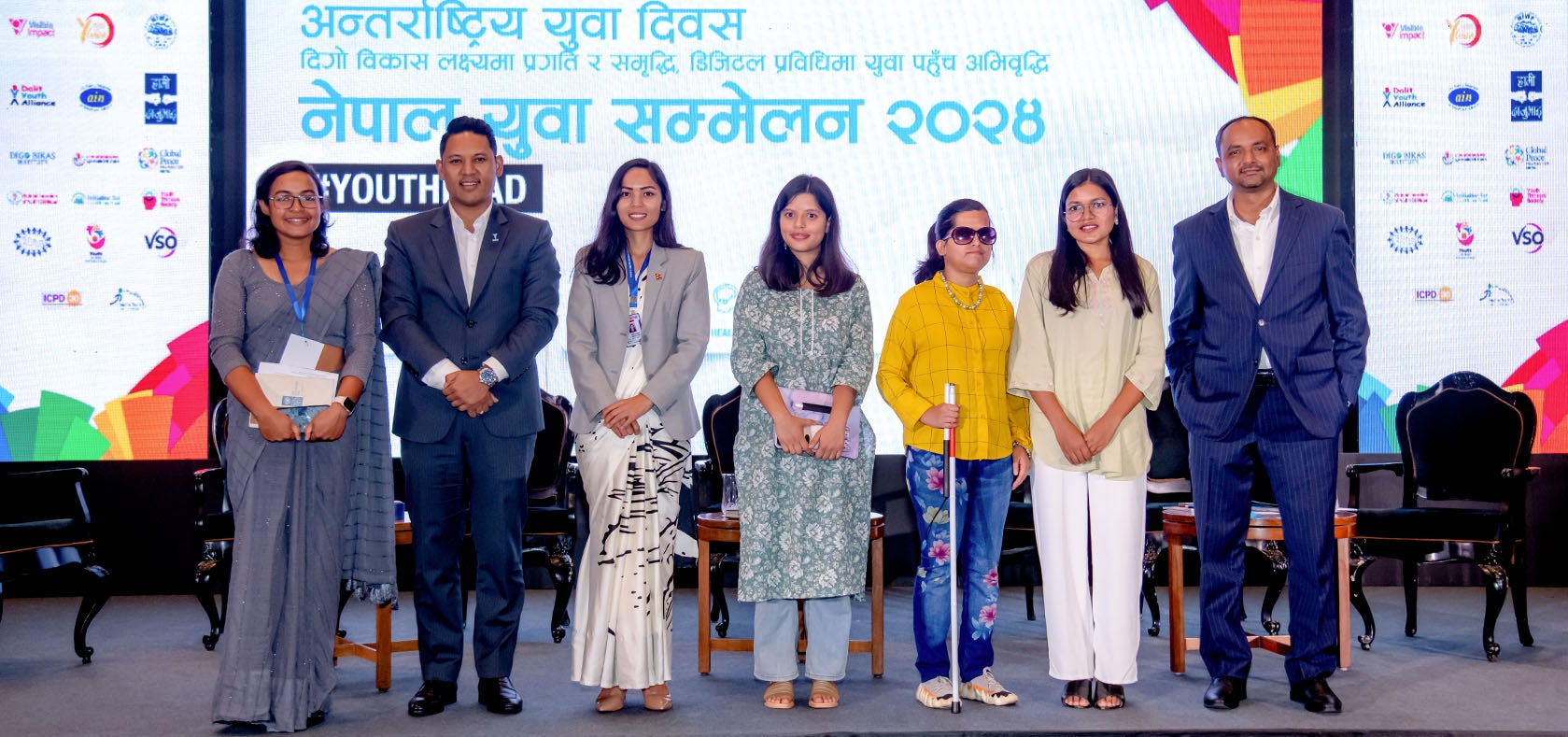Take Five with Ashmita Bayalkoti: “We need to ensure that inclusion is not just a policy but a reality in every sector of society”
Date:

Ashmita Bayalkoti, an Executive Committee member of Chandragiri Municipality, Kathmandu, Nepal, strongly advocates for Dalit women’s rights. She recently attended UN Women’s Storytelling workshop funded by the Government of Finland and was a panelist at Nepal’s Summit of the Future in September 2024. She shares her political journey and her expectations for the Beijing+30 review process.
1. How was your experience as a panelist at the National Youth Summit, as part of the Summit of the Future?
I was delighted to be a panelist at the Summit, which saw participation of youth across the country. We had extensive discussions on a wide range of issues concerning youth, including the challenges they face, their needs and the importance of increasing their participation in politics, policymaking, entrepreneurship and leadership roles. It turned out to be a valuable platform for youth, especially those representing remote geographical regions and marginalized communities, to share their ideas and build networks.
As a panelist, I emphasized the critical need for making suitable laws as well as effectively implementing existing ones to increase the representation of women and youth in leadership and decision-making positions.
Listening to my fellow panelists, I gained a deeper understanding of the discrimination and violence faced by persons with disabilities (PWDs), the LGBTIQ+ community and youth with different intersections. It was a powerful reminder of the importance of ensuring their representation in decision-making spaces.
2. What is your experience with including youth from marginalized communities in such discussions and decision-making platforms?
There is a widespread social perception that youth are not ‘mature’ enough to make the right decisions or assume leadership roles. It’s important to shift such public opinions and attitudes and build trust in the capabilities of young people. Equally important is harnessing the potential of young people by informing them of their rights and duties, if we want to see them in leadership roles.Including youth, especially young women, in such discussions is critical to identify the harmful social norms that have been hindering their representation in various sectors. The representation of youth from diverse intersections is important while formulating and implementing policies and programmes.
I have observed that some of our existing laws are ineffective, mainly because they were drafted without accounting for the perspectives of the communities they aim to serve. For instance, the challenges faced by PWDs are difficult to fully grasp without first-hand experience. The same holds true for women, marginalized communities, Dalits and other underrepresented groups. As a young Dalit woman, my participation in these kinds of forums has enabled me to raise our concerns directly with the Government and related authorities.
3. What gaps do you see that contribute to the underrepresentation of women in decision-making?
Traditional harmful norms rooted in patriarchy are a major impediment to women’s empowerment. Many of our cultural practices often reinforce the notion of women playing a subservient role. Many women are still confined to traditional roles and discouraged from pursuing financial independence.
Although there have been some legal reforms to support women’s right to property, they still face significant challenges in inheritance. Even when properties are registered in women’s names, decision-making power rests with male family members. The lack of financial power is also a key factor in women’s underrepresentation in politics or other sectors. Running for politics, for example, requires financial resources for campaigning.
Additionally, there is still a significant lack of trust in women’s capabilities. Discriminatory public perceptions, along with limited access to leadership development opportunities, education, scholarships, targeted support for PWDs, etc. further contribute to the underrepresentation of women, especially those from Dalit and other underprivileged groups.
4. What are your suggestions to fill this gap?
Political parties have not yet fulfilled the 33 per cent representation of women within their internal structures as well as in other positions of power. It is high time that political parties entrust women with leadership roles and are held accountable if they fail to adhere to inclusion policies.
Women’s economic empowerment is another area where we need to bridge the gap. Measures like loan subsidies for women-led start-ups can provide the financial independence women need to excel in other areas. The strict implementation of constitutional and legal provisions that promote women’s representation – such as equal pay for equal work, protection from harassment and safeguards against gender-based violence – is critical across all sectors.
Establishing women’s networks that facilitate mentorship, where senior women leaders guide emerging women leaders, can play a significant role in knowledge-sharing and confidence-building. These networks will help women grow into leadership roles. Men should be included in such training opportunities, as they are essential allies in this journey.
School curricula also need to be revised to nurture positive perspectives on gender and caste equality from an early age. There needs to be collective pressure from civil society organizations and international development communities to ensure that the Government fulfils its obligations to include women, youth and historically marginalized communities in all decision-making spaces.
5. What do you want the Nepal delegation to focus on during the regional and global reviews of Beijing+30?
Nepal should prioritize the amendment and full implementation of laws addressing gender-based violence. Discrimination based on gender, caste and other identities continues to limit opportunities for many, which in turn affects the country’s overall economic progress. Therefore, programmes and policies aimed at empowering rural people, marginalized communities and the LGBTQI+ community should be a central focus. Women’s economic empowerment is crucial as it provides them with choices in life, like access to education, employment opportunities and entrepreneurial development, which further strengthens their overall contributions to society.
The Nepal Delegation should also focus on inclusive education that addresses the diverse needs of all communities and ensure that leadership and skills-based training are made accessible. This would allow for the representation of all groups, especially women, in leadership positions.
Currently, women’s representation in politics and government sectors is mandated at 33 per cent, which needs to be increased, as women make up over half of the population. Our delegation can focus on building mechanisms to hold political parties and organizations accountable towards laws promoting inclusion. We need to ensure that inclusion is not just a policy on paper but a reality in every sector of society.
 Ashmita Bayalkoti (third from the left) with fellow panelists at the National Youth Summit. Photo: United Nations Nepal
Ashmita Bayalkoti (third from the left) with fellow panelists at the National Youth Summit. Photo: United Nations Nepal